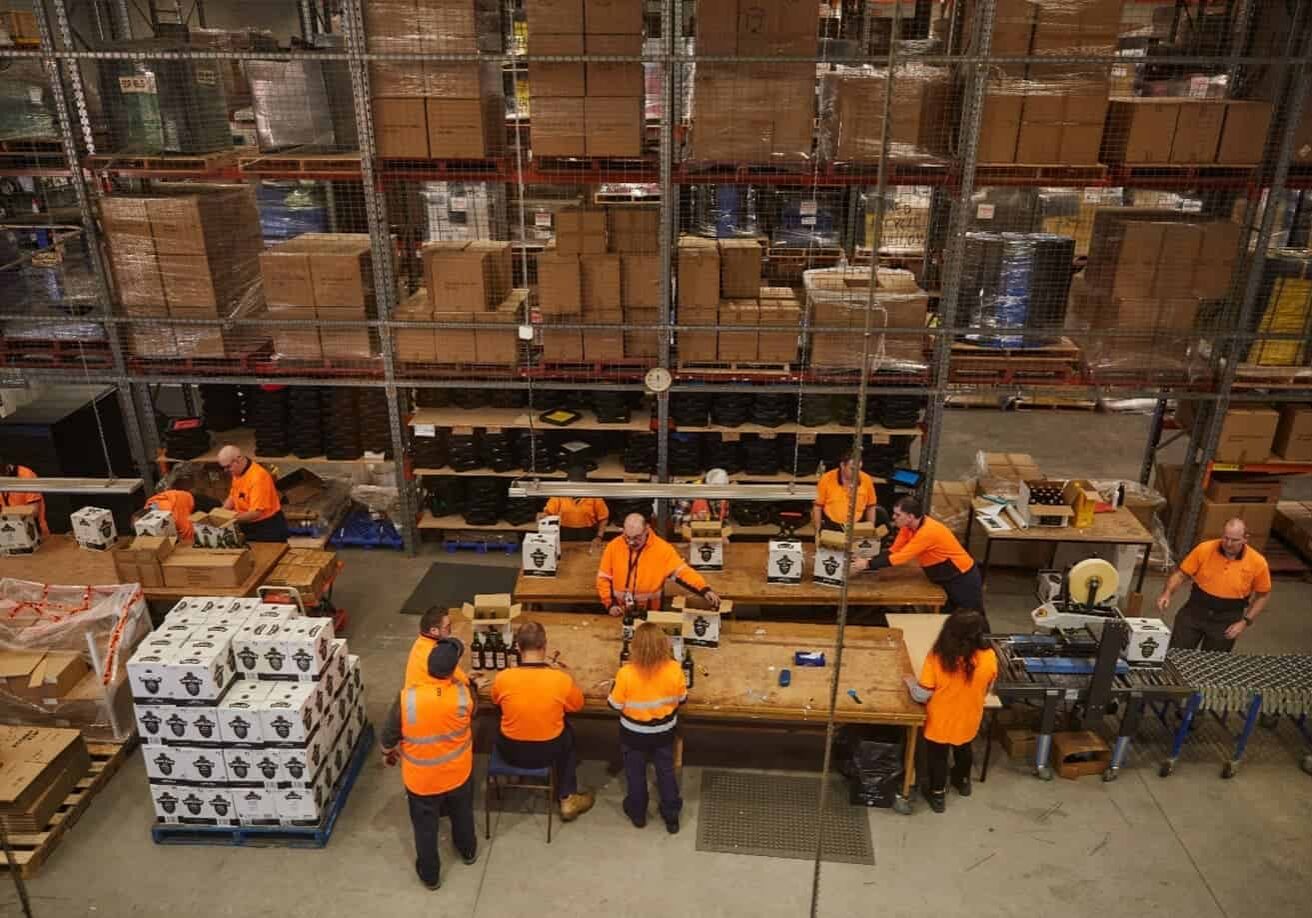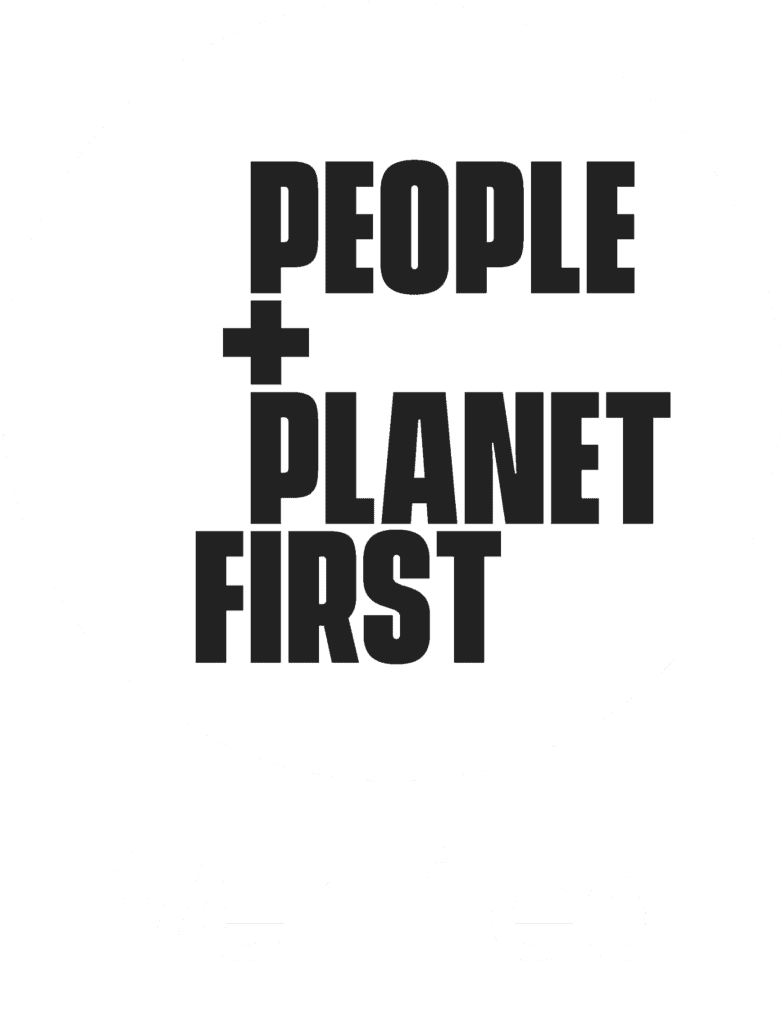Just weeks before COVID-19 swept the world, Ann-Maree Colborne stepped into the CEO role at Marriott Support Services, one of Melbourne’s leading suppliers of disability employment. The 50-year-old organisation had a solid legacy but an uncertain future and needed to undergo a major business transformation regardless of the challenges a pandemic was determined to throw in their direction. Three years later, it looks like they’ve made it.
“Welcome to my fishbowl”, laughs Ann-Maree as we prepare for the interview.
It’s a sunny day in Cheltenham. She serves us coffee while nodding to the people passing by her window. The office is positioned in the corner of the ground floor of the building, and the windows keep the CEO exposed to everyone going in and out of Marriott. “I keep the blinds up and my door open,” says Ann-Maree. “I am accessible, and everyone working here knows it.”
In the last three years, Marriott changed its status with some impressive outcomes. The team took over a fatigued disability service provider and turned it into a dynamic organisation employing people with disabilities and other barriers to employment.
“We wanted to offer quality social enterprise services to businesses seeking a social impact advantage. Part of this business transformation was looking at the commercial reality of what we need to do,” says Ann-Maree. “We looked at the commercial viability of every contract and costing and came across the old habit of not covering staff wages, CPI, cost of equipment – all those bits and pieces that a commercial business needs to consider.”
Ann-Maree also came across stereotypes about the perceived ability of their workforce. “We had to overcome the perception that it’s ok to underpay people with disabilities. I refuse to accept that. Our job is to take good care of our people, so we need to pay them properly.
To offer competitive pricing, the team did a thorough organisational review to time and cost each component at minimum wage and incorporated what Ann-Maree calls a ‘sustainability margin’.
“I use the term because it takes away from the whole language of profit. Many people think that not-for-profits shouldn’t make any profit, and I respect that, but that doesn’t mean they shouldn’t be sustainable!” she adds.
From warehousing, wrapping, packaging, and product marketing to commercial office cleaning, landscaping services and land management, today, Marriott Industries offer a suite of quality services to clients while providing meaningful employment, mentoring, training and support to priority jobseekers.

Inclusion, retention and productivity.
Like many organisations, Marriott also experienced skill shortages but recognised soon enough the need to work strategically on retention by building the culture.
“People are our greatest asset and biggest liability,” says Ann-Maree. “There’s been a major investment in training and building everybody’s capabilities. We make sure our employees feel confident, and at the same time, we focus on building a social fabric within our organisation’s culture.”
From the seemingly trivial, like Bring Your Dog to Work Days and social events, to the more meaningful, like early marks to spend more time with family and tangible support when times get tough, Ann-Maree is committed to creating a good working environment and caring atmosphere at Marriott.
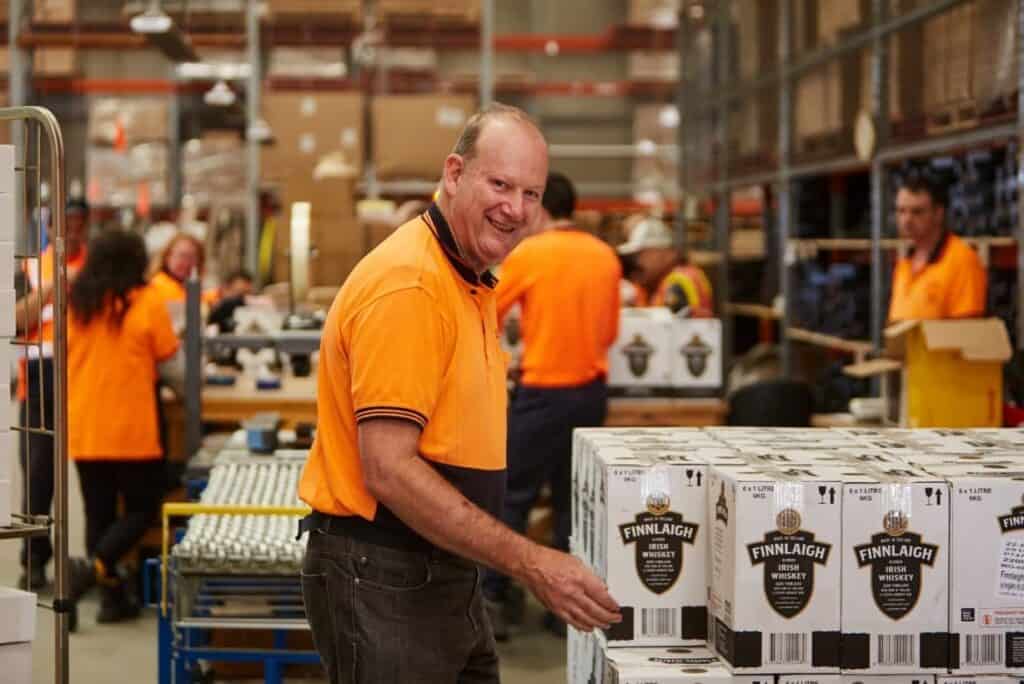
The blended workforce also works in everyone’s favour. Out of the 227 employees, approximately 112 are people facing barriers to employment. Whether they’re are living with a disability, from an Indigenous background, single parents, or facing mental health issues, Marriott is investing in people from all walks of life.
“Our employees with a disability get to understand people from different backgrounds, different ethnicities that they’re not used to – and vice versa. We all learn how to communicate and work together as a team.”

“The more we work on inclusion and the social fabric and understand who everyone is and what they need to feel safe at work, the more we observe an increase in productivity. Our people love this place; they want to be here. Social inclusion and social fabric are the most intrinsic part for them.”
Marriott’s sustainability margin is not to line pockets but to reinvest in training and other support provided to employees and automation in business. From computer and digital literacy to NDIS and safety training, Marriott upskills the team so that they’re ready to not only do their best in their current role but become ready to move to other employers.
The business also invests in systems. In its commercial food production, for example, where the team handles the packing of herbs and spices, until recently, everything, including measuring the spices, sterilising jars, sealing and labelling, was done manually. The workers could manage 600 jars a week, but now, with new equipment, they process 10,000 jars a week.
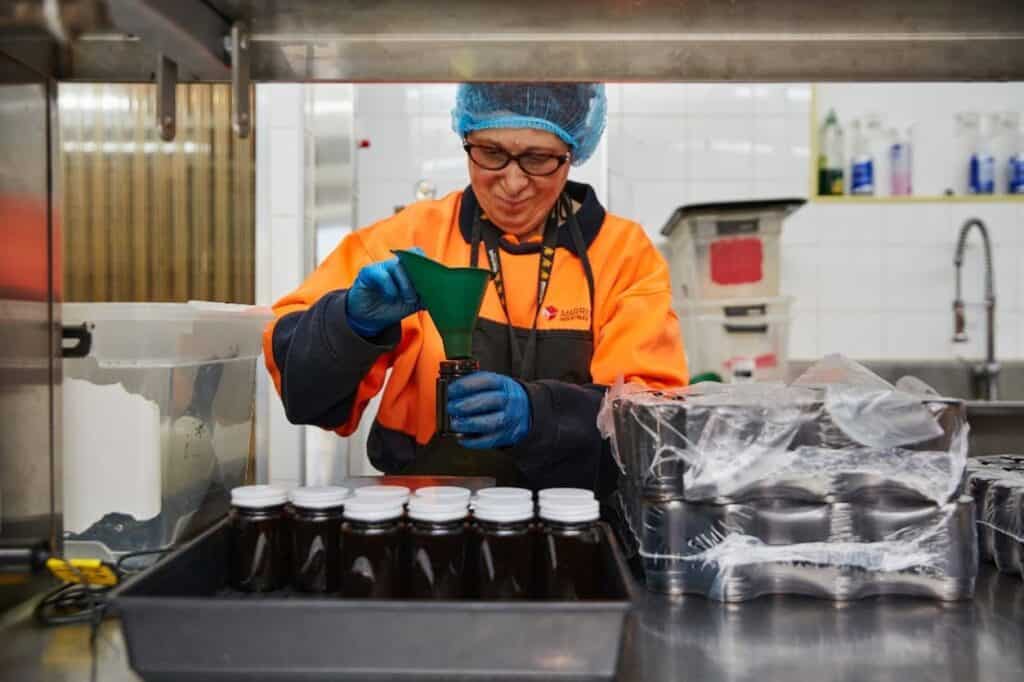
“The shift from manual to automation was extraordinary!” says Ann-Maree. “Simple yet strategic moves like this increase productivity and make life better for our people.”
It’s time to go a step beyond social-washing
While the team at Marriott has made enormous progress, Ann-Maree is aware of pitfalls that lay outside their control.
“The Federal Government pledged $78 billion towards social procurement this financial year, but organisations like ours don’t always see the benefits,” she says. The pledge specified a minimum of 10% investment into Indigenous businesses. “There’s room for everyone, and social procurement is one step towards a better future. If we had the percentage of that spend distributed across all priority cohorts, it would allow us to thrive and create better employment for the people we support.”
Social procurement can become a significant enabler, but as Ann-Maree says, “until the sector becomes a mandatory target, we won’t escape incidents of social washing or going for the cheapest provider.”

So, the team continue their strong advocacy work to shift things and, in the meantime, make sure the building blocks are in place so that as the social procurement space evolves, Marriott can keep pace and continue to provide great opportunities for employees and quality services for clients.
“You’ve got to walk the talk with inclusion,” she says as we finish our conversation. “It’s not an easy journey, but if you ask for help from subject-matter experts like us, you will get good guidance. Employers should consider bringing organisations like Marriott into their business to help them become truly inclusive with a fee-for-service model. We have the knowledge; we know how it’s done.”
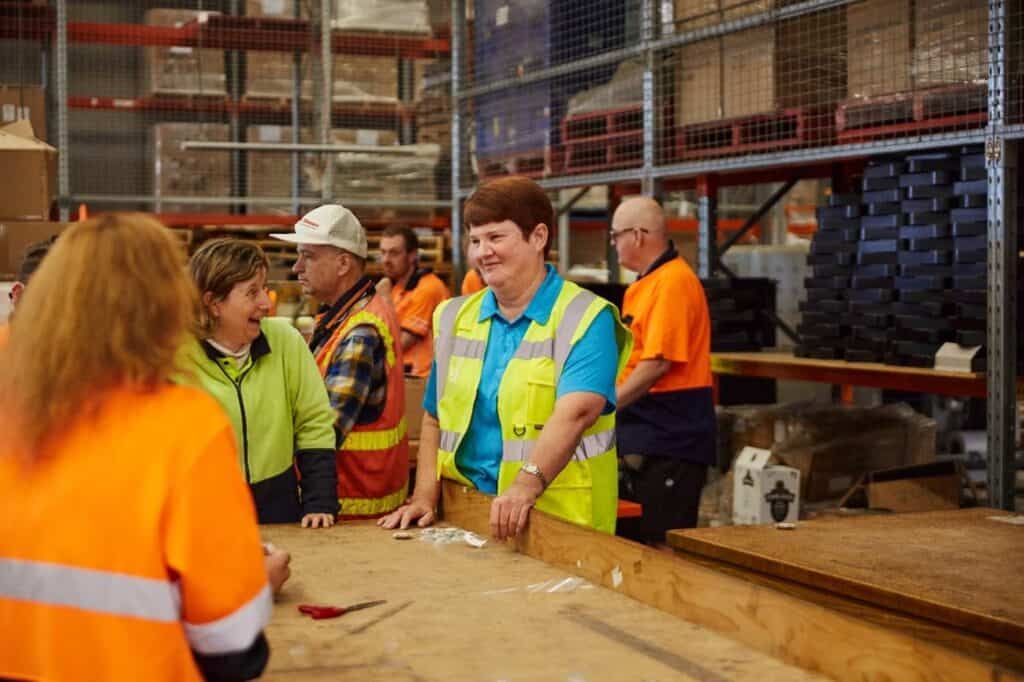
*Marriott Support Services are an inclusive employer registered in the Jobsbank Inclusion Hub.
Photos by Laura May Grogan
